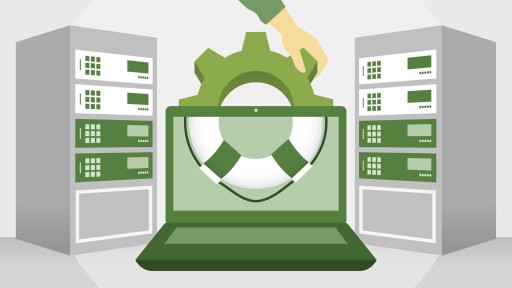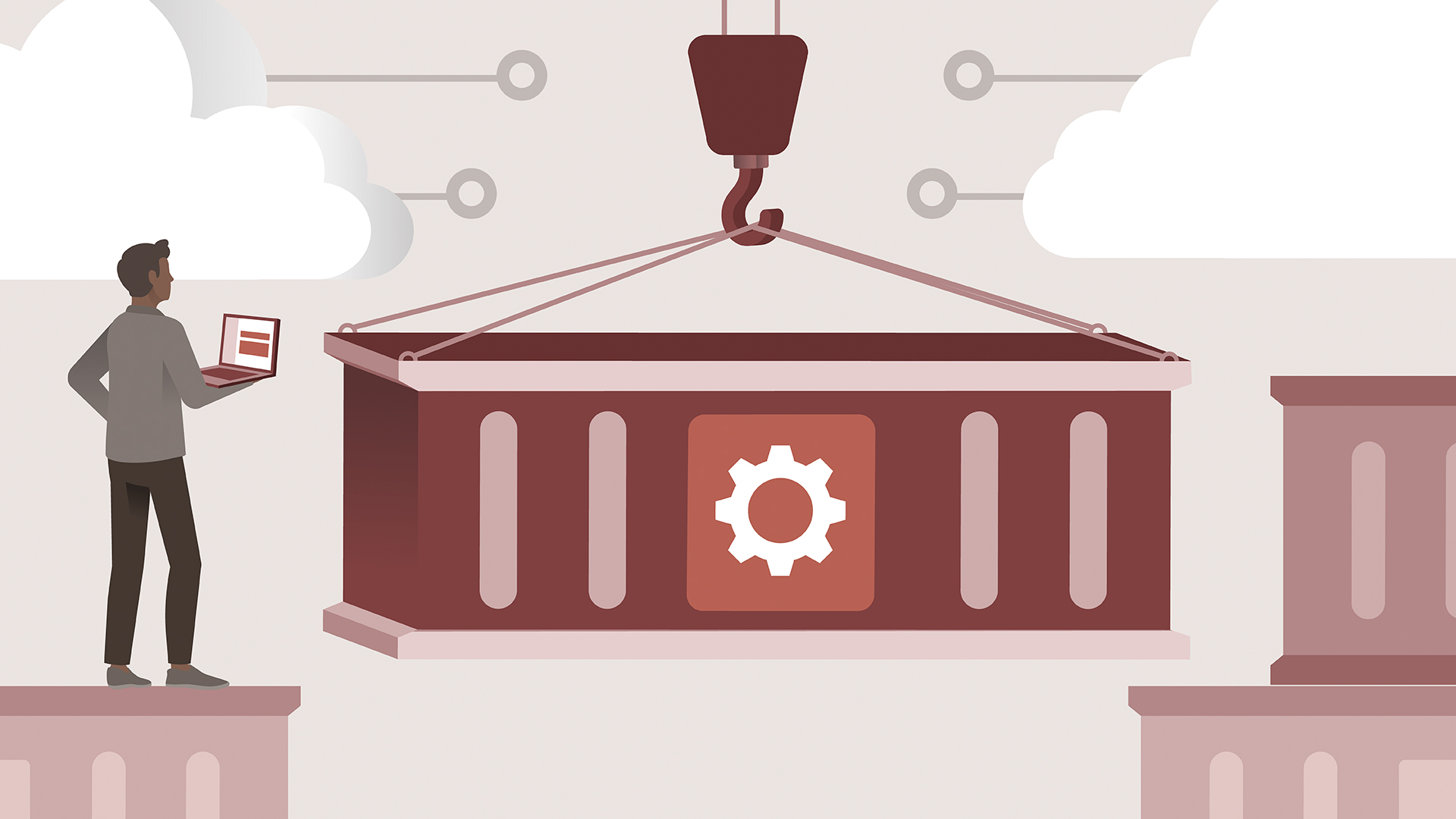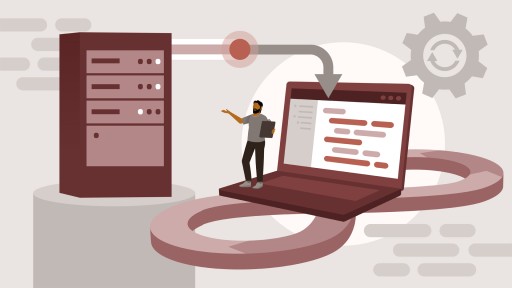
This course provides the knowledge and skills to design and implement DevOps processes and practices. Students will learn how to plan for DevOps, use source control, scale Git for an enterprise, consolidate artifacts, design a dependency management strategy, manage secrets, implement continuous integration, implement a container build strategy, design a release strategy, set up a release management workflow, implement a deployment pattern, and optimize feedback mechanisms
Students in this course are interested in designing and implementing DevOps processes or in passing the Microsoft Azure DevOps Solutions certification exam.

SCORE 4/5 by Smals Colleagues
DevOps ensures collaboration and communication between software engineers (Dev) and IT operations (Ops). With DevOps, changes make it to production faster. Resources are easier to share. And large-scale systems are easier to manage and maintain. In this course, well-known DevOps practitioners Ernest Mueller and James Wickett provide an overview of the DevOps movement, focusing on the core value of CAMS (culture, automation, measurement, and sharing). They cover the various methodologies and tools an organization can adopt to transition into DevOps, looking at both agile and lean project management principles and how old-school principles like ITIL, ITSM, and SDLC fit within DevOps. The course concludes with a discussion of the three main tenets of DevOps—infrastructure automation, continuous delivery, and designing resilient systems—as well as some additional resources and what the future holds.
Ce cours n´est disponible qu´en anglais. Si ce n´est pas un problème pour vous, soumettez votre demande.
Topics include:

Containers are an amazingly versatile and powerful tool in the DevOps toolkit that can remove or smooth over a lot of the usual pain points in application development. Instructor Josh Samuelson goes over what containers are, where and when you can use them, and how to manage them well. Josh begins with a thorough explanation of what containers are, why you should use them, and how containers differ from VMs. He covers using containers in development, packaging, and production, with examples and factors to consider for each. Josh concludes with an in-depth look at how you can use Docker Swarm, Kubernetes, Mesos, and cloud container solutions to manage your containers effectively.
Topics include:
Ce cours n´est disponible qu´en anglais. Si ce n´est pas un problème pour vous, soumettez votre demande.
This course is in French only. If this is not a problem for you, by all means go ahead and apply.

Infrastructure automation—transitioning an organization's system administration from hardware into code—is one of the major DevOps practice areas. By automating configuration management, you can make your systems more reliable, processes more repeatable, and server provisioning more efficient. In this course, learn the basics of infrastructure as code, including how to keep your configuration in a source code repository and have it built and deployed just like an application. Discover how to approach converting your systems over to becoming fully automated—from server configuration to application installation to runtime orchestration. Join notable DevOps practitioners Ernest Mueller and James Wickett as they dive into key concepts, and use a wide variety of tools to illustrate those concepts, including Ansible, Terraform, Docker, Kubernetes, Serverless, and AWS Lambda. Check out this course to gain the knowledge you need to start implementing an infrastructure as code strategy.
Topics include:
Ce cours n´est disponible qu´en anglais. Si ce n´est pas un problème pour vous, soumettez votre demande.
This course is in French only. If this is not a problem for you, by all means go ahead and apply.
